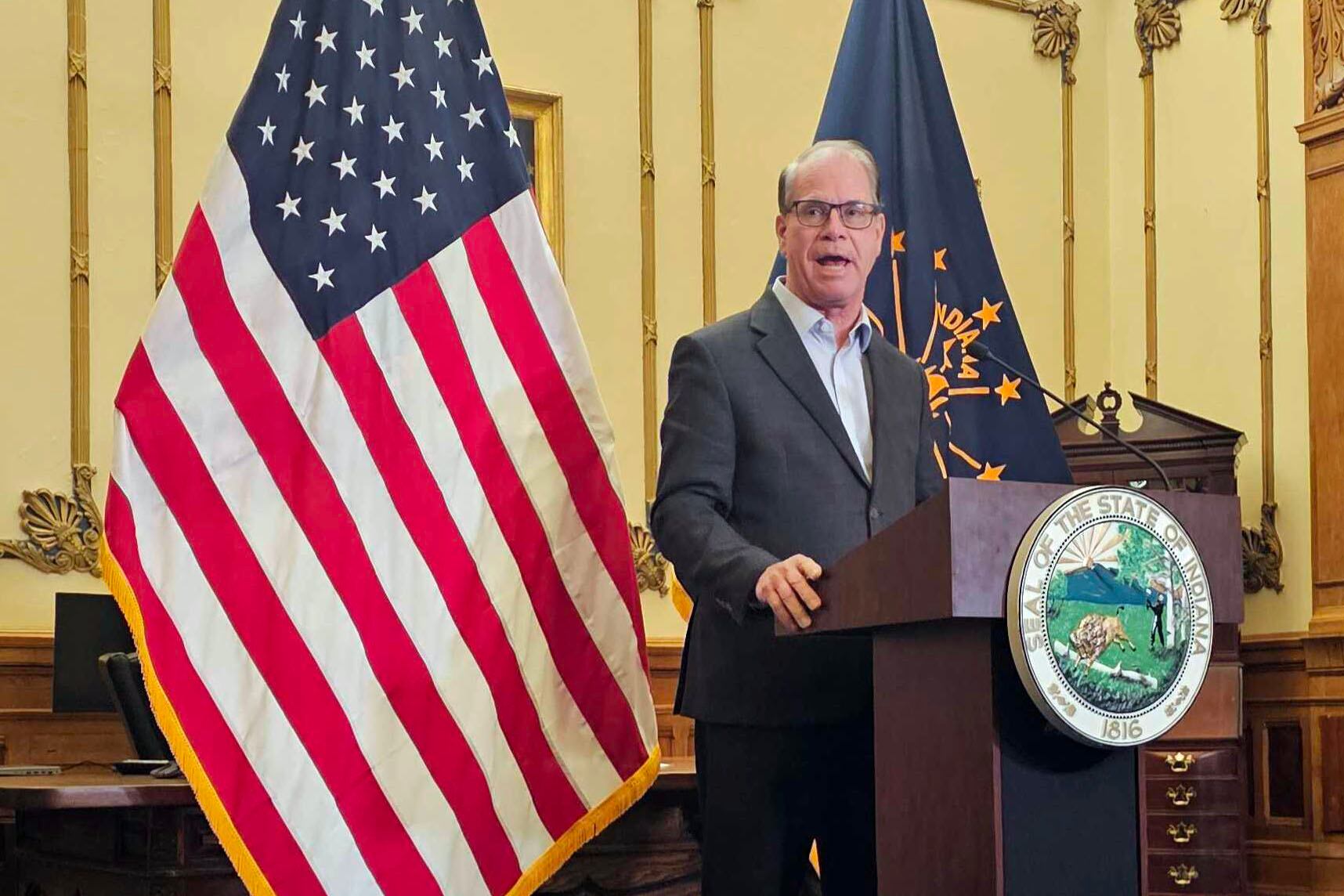Sign up for Chalkbeat Indiana’s free daily newsletter to keep up with Indianapolis Public Schools, Marion County’s township districts, and statewide education news.
Gov. Mike Braun proposed a modest 2% annual increase in K-12 funding in the first budget presentation of his term, in line with expectations that a tighter budget would limit the money available for education costs.
At the same time, Braun is also forging ahead with two campaign promises to make school vouchers universal and to cap property tax increases, while chiding school districts that have come to rely too much on raising taxes through referendums to fund programs and operational costs.
“School districts better have tucked some of that away in their rainy day funds and not been mismanaging to where they would need that kind of increase year after year,” Braun said Thursday at a budget presentation. “The ones that poorly managed how they spend and overtaxed in the process are who we’re going to get back down to Mother Earth.”
The governor’s budget proposal typically informs the legislative budget process, which begins with hearings from state agencies, including the Indiana Department of Education. Lawmakers then write a budget bill. The budget is finalized in April and covers two years.
Indiana is facing a leaner year following the end of federal COVID relief spending, a Medicaid budget shortfall, and the ongoing pressures of inflation. Schools are contending with the end of their own federal emergency monies that funded salaries and programs post-COVID.
Braun’s proposed increase would amount to $540 million more in funding for K-12 tuition support over two years — $181 million in 2026 and $365 million in 2027. These funds support public schools, including charter schools, and the Choice Scholarship voucher program, which Braun intends to make universal this year.
In the 2023-25 budget, lawmakers touted an 8% increase in the total K-12 funding formula over the biennium, including an increase for Choice Scholarships. The final per-student funding increase was around 5% more in 2024 and around 2% more in 2025.
The budget also includes $50 million for other education initiatives and $362 million for child care subsidies, as well as $30 million more for Education Scholarship Accounts and $2 million more for Career Scholarship Accounts — two voucher-like programs for students with disabilities and career training for high schoolers, respectively.
Braun’s priorities also include increasing the school safety grant and raising minimum teacher salaries from $40,000 to $45,000 — a key proposal in Senate Bill 146, and expected to cost around $14 million from tuition support.
He said he would ask each cabinet secretary to find cuts of around 5% in their budgets in order to help fund some of his other priorities, such as sales tax holidays on back-to-school supplies. A presentation to the State Budget Committee estimated around $700 million in reduced government spending over the biennium.
Some of Braun’s property tax priorities are reflected in Senate Bill 1, which caps property tax growth and restricts school referendums to general elections occurring in an even-numbered year.
Braun estimated that around one-third of counties would not have an issue with his property tax reform proposals because they had kept increases modest, or adjusted rates down as needed. Others “are going to scramble,” he said.
“Every county is going to have a little bit of a different story,” he said.
Aleksandra Appleton covers Indiana education policy and writes about K-12 schools across the state. Contact her at aappleton@chalkbeat.org.







